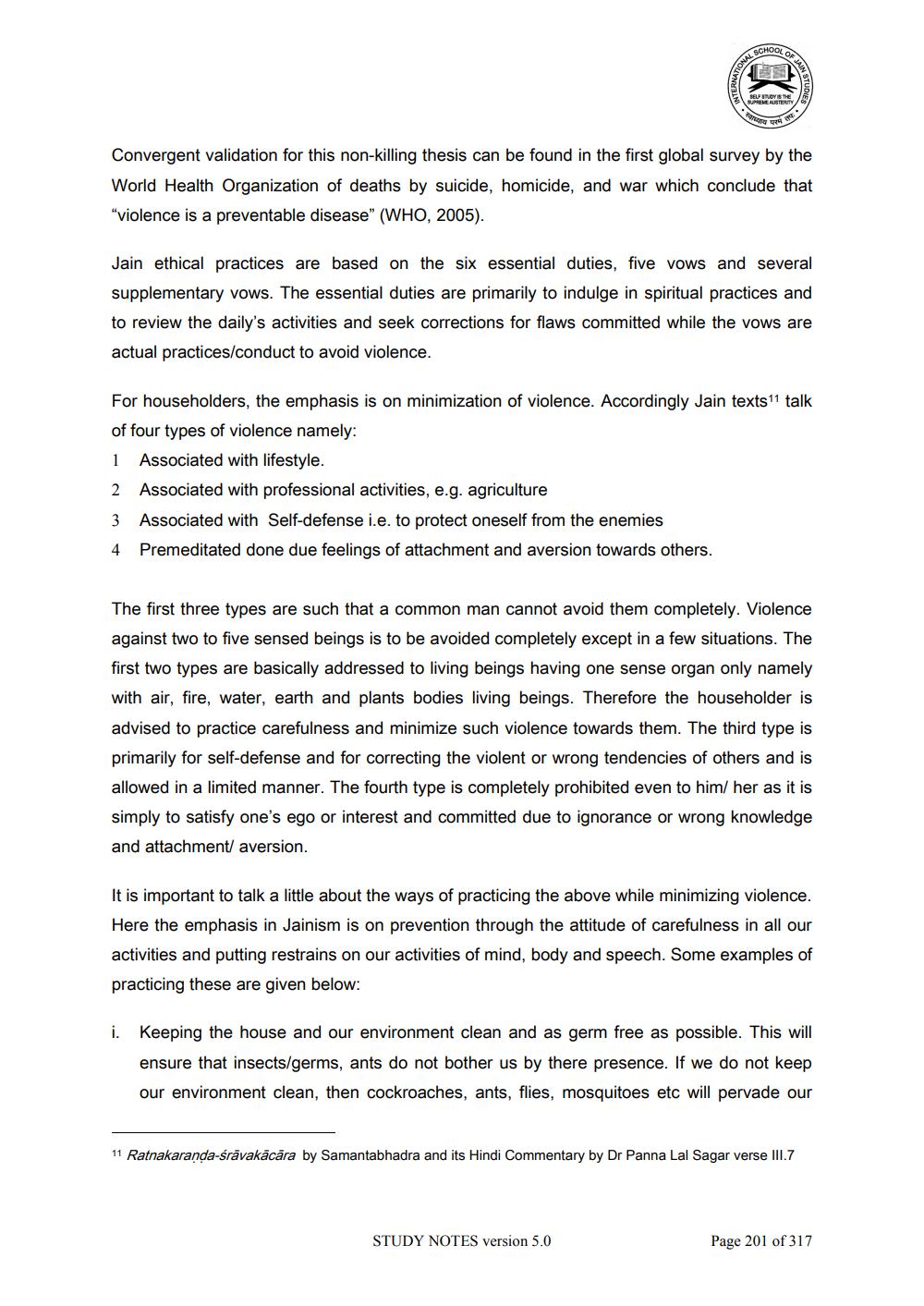________________
Convergent validation for this non-killing thesis can be found in the first global survey by the World Health Organization of deaths by suicide, homicide, and war which conclude that “violence is a preventable disease" (WHO, 2005).
Jain ethical practices are based on the six essential duties, five vows and several supplementary vows. The essential duties are primarily to indulge in spiritual practices and to review the daily's activities and seek corrections for flaws committed while the vows are actual practices/conduct to avoid violence.
For householders, the emphasis is on minimization of violence. Accordingly Jain texts 11 talk of four types of violence namely: 1 Associated with lifestyle. 2 Associated with professional activities, e.g. agriculture 3 Associated with Self-defense i.e. to protect oneself from the enemies 4 Premeditated done due feelings of attachment and aversion towards others.
The first three types are such that a common man cannot avoid them completely. Violence against two to five sensed beings is to be avoided completely except in a few situations. The first two types are basically addressed to living beings having one sense organ only namely with air, fire, water, earth and plants bodies living beings. Therefore the householder is advised to practice carefulness and minimize such violence towards them. The third type is primarily for self-defense and for correcting the violent or wrong tendencies of others and is allowed in a limited manner. The fourth type is completely prohibited even to him/her as it is simply to satisfy one's ego or interest and committed due to ignorance or wrong knowledge and attachment/ aversion.
It is important to talk a little about the ways of practicing the above while minimizing violence. Here the emphasis in Jainism is on prevention through the attitude of carefulness in all our activities and putting restrains on our activities of mind, body and speech. Some examples of practicing these are given below:
i. Keeping the house and our environment clean and as germ free as possible. This will
ensure that insects/germs, ants do not bother us by there presence. If we do not keep our environment clean, then cockroaches, ants, flies, mosquitoes etc will pervade our
11 Ratnakaranda-śrāvakācāra by Samantabhadra and its Hindi Commentary by Dr Panna Lal Sagar verse III.7
STUDY NOTES version 5.0
Page 201 of 317




